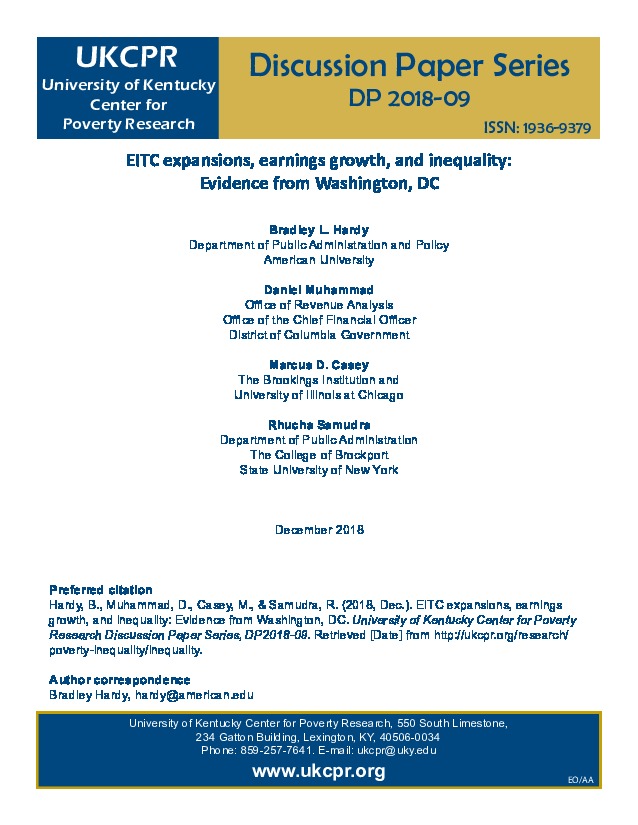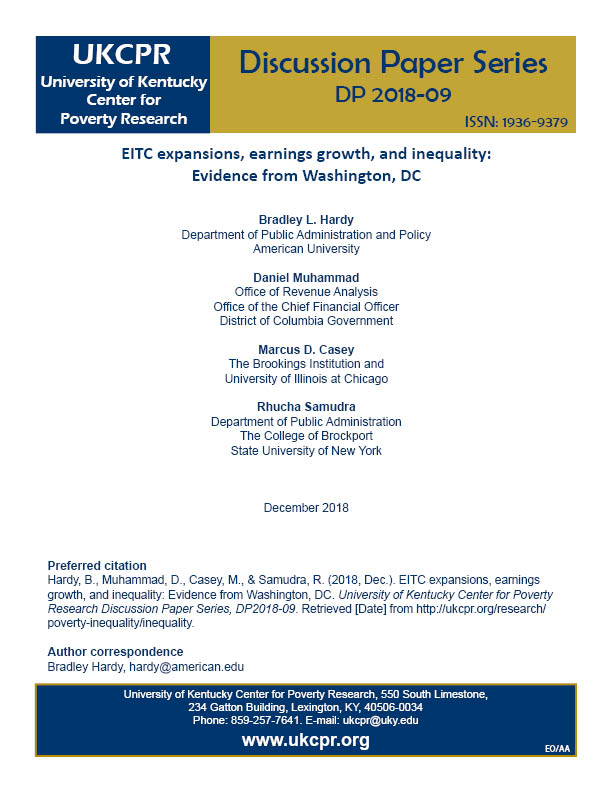We use longitudinal administrative tax data from Washington DC (DC) to study how EITC expansions undertaken by Washington DC affect income and inequality in the city. We find that DC EITC credit expansions between 2001 and 2009 are associated with recipient pre-tax earnings growth of roughly 3-4 percent, primarily among single mothers. Together these credits reduce post-tax inequality for the 10th percentile relative to median households. However, composition changes in the city and growing overall inequality mitigates this inequality reduction toward the end of the period. Overall, these results complement existing research showing that the EITC has a positive effect on labor market outcomes and household well-being.
Research
InequalityPDF Thumbnail

Author(s)
Bradley Hardy Daniel Muhammad Marcus D. Casey Rhucha SamudraImage
